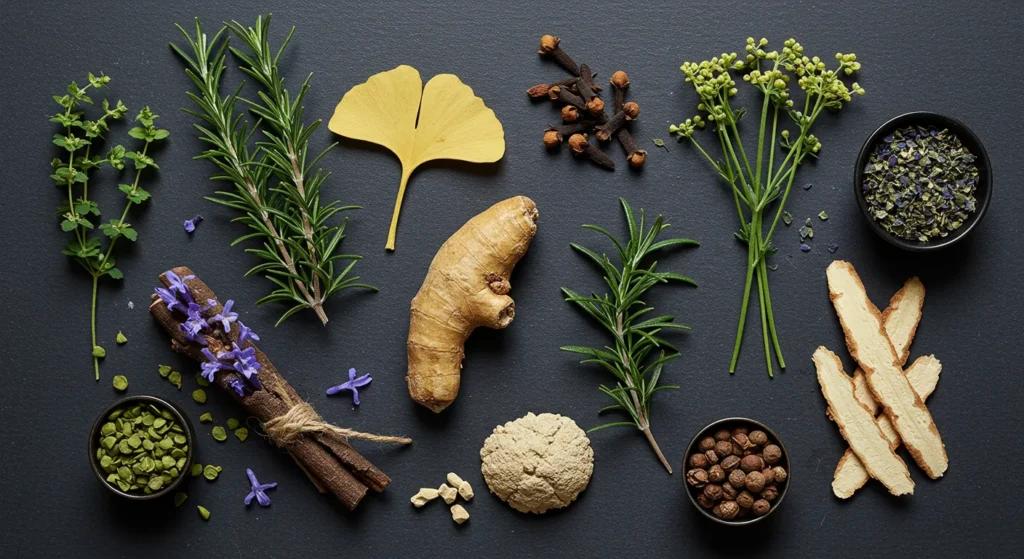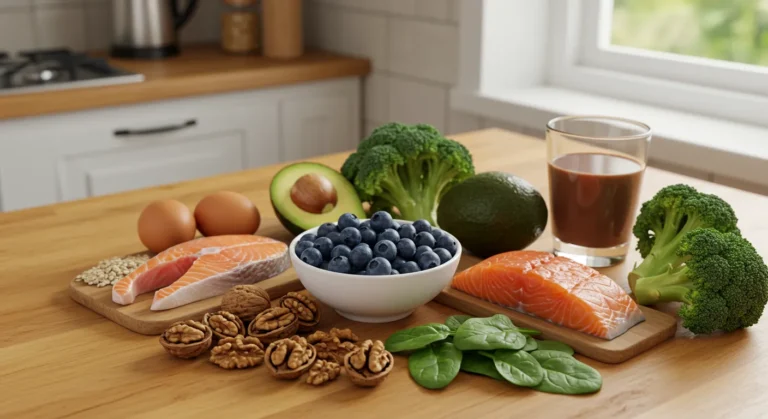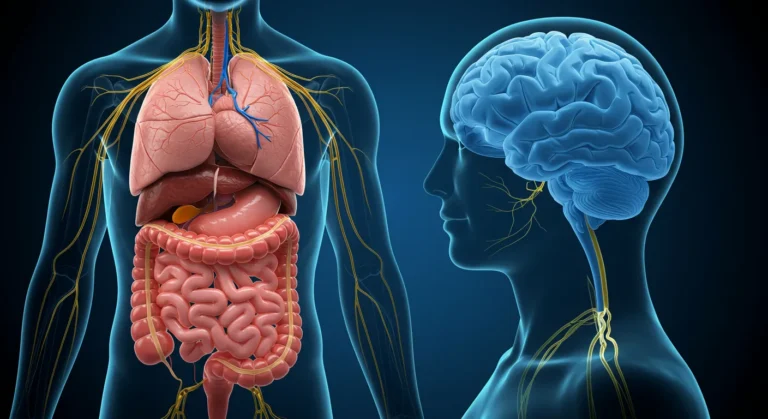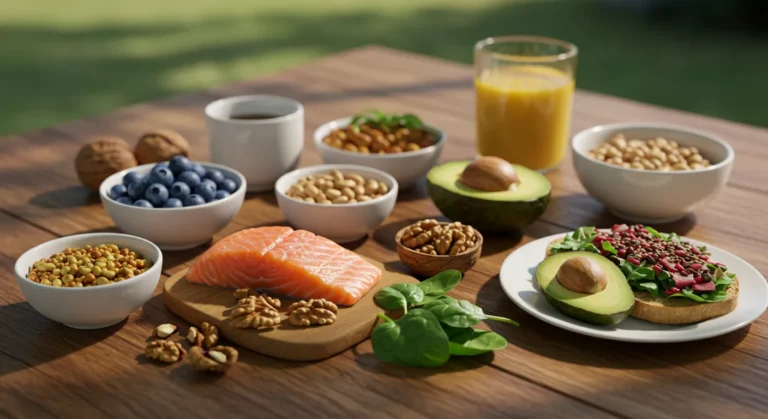Best Herbs for Brain Health: Natural Nootropics That Actually Work

Two years ago, I was that person who survived on coffee fumes and willpower. You know the type – juggling deadlines, answering emails at midnight, convincing myself that “I’ll rest when this project is done.”
Then came the crash.
Not the dramatic kind you see in movies, but the slow, grinding realization that my brain just… stopped cooperating. Simple tasks felt mountainous. I’d walk into rooms and forget why I was there. Words would vanish mid-sentence during important conversations.
My doctor ran tests. Everything came back “normal.” But I felt anything but normal.
That’s when I stumbled into the world of the best herbs for brain health – not because I was some wellness guru, but because I was desperate. What I discovered changed everything about how I think about cognitive performance.
Here’s what actually works (and what’s just expensive marketing).
The Real Story Behind Brain Herbs
Let’s cut through the noise for a minute. Walk into any health store, and you’ll see shelves packed with “brain boosters” promising instant genius. Most are overpriced caffeine pills with fancy labels.
But some herbs – the ones that have been quietly supporting human cognition for thousands of years – are different. They don’t give you a jittery high followed by a crash. Instead, they work more like personal trainers for your neurons.
Here’s what makes the best herbs for brain health special:
They’re adaptogens – meaning they help your body adapt to stress rather than just masking it. Think of them as shock absorbers for your nervous system.
They support neuroplasticity – your brain’s ability to form new connections and rewire itself. This is crucial for learning, memory, and recovery from mental fatigue.
They work holistically – instead of targeting just one pathway, they support multiple aspects of brain health simultaneously.
The key difference? These aren’t quick fixes. They’re more like compound interest for your cognitive health – small, consistent gains that build into something significant over time.
7 Brain Herbs That Actually Move the Needle
1. Bacopa Monnieri: The Memory Specialist
I’ll be honest – Bacopa tastes awful. Like swamp water mixed with regret. But after 8 weeks of consistent use, I could recall details from conversations that happened months earlier. It was like upgrading my brain’s storage system.
What it does: Bacopa contains compounds called bacosides that repair damaged neurons and enhance communication between brain cells. Studies show it can improve memory formation by up to 20% after 12 weeks of use.
Best for: Students, anyone dealing with information overload, or if you keep forgetting where you put your keys.
How to use: 300-600mg daily with food (it’s fat-soluble). Capsules are your friend here – trust me on the taste issue.
2. Lion’s Mane Mushroom: The Brain Regenerator
This fuzzy white mushroom looks like something from a Dr. Seuss book, but it’s possibly the most exciting brain herb of our time. Lion’s Mane is one of the few natural compounds that can actually stimulate the growth of new brain cells.
What it does: Contains compounds called hericenones and erinacines that cross the blood-brain barrier and stimulate nerve growth factor (NGF). Think of it as fertilizer for your neurons.
Best for: Brain fog, post-concussion recovery, or anyone wanting to future-proof their cognitive health.
How to use: 500-1000mg daily. The powder form works great in coffee or smoothies – it has a subtle, savory flavor.
3. Rhodiola Rosea: The Stress-Proof Focus Enhancer
This Arctic plant thrives in some of the harshest conditions on Earth. Turns out, it can help your brain do the same thing.
What it does: Rhodiola modulates your stress response, preventing cortisol from hijacking your cognitive performance. It’s like having a bouncer for your brain – letting good thoughts in while keeping stress-induced mental chaos out.
Best for: High-pressure situations, chronic stress, or when you need sustained focus without the jitters.
How to use: 200-400mg in the morning on an empty stomach. Timing matters – take it too late and it might interfere with sleep.
4. Ginkgo Biloba: The Circulation Optimizer
Ginkgo trees have been around for 270 million years. They survived the ice age, and individual trees can live for over 1,000 years. There’s something to be said for that kind of resilience.
What it does: Improves blood flow to the brain, enhancing delivery of oxygen and nutrients. Better circulation equals better cognitive performance – it’s that simple.
Best for: Mental fatigue, age-related cognitive decline, or if you feel like your brain is “slow” in the mornings.
How to use: 120-240mg daily of standardized extract (look for 24% flavone glycosides and 6% terpene lactones).
5. Gotu Kola: The Anxiety-Busting Clarity Booster
In Ayurvedic medicine, Gotu Kola is called “food for the brain.” After using it for three months, I understood why. It’s like meditation in plant form – creating calm alertness without drowsiness.
What it does: Enhances GABA activity (your brain’s brake pedal) while supporting acetylcholine production (important for learning and memory). The result? Relaxed focus.
Best for: Anxiety-related brain fog, students, or anyone who needs to think clearly under pressure.
How to use: 300-680mg daily. The tea form is pleasant and can be part of an evening routine.
6. Ashwagandha: The Stress-Reset Button
This root doesn’t directly boost brain function – instead, it removes the barriers that prevent your brain from working optimally. By reducing cortisol levels, it gives your cognitive functions room to breathe.
What it does: Lowers cortisol by up to 30% in chronically stressed individuals, which dramatically improves memory, attention, and decision-making.
Best for: Chronic stress, burnout recovery, or if you feel like stress is making you “dumber.”
How to use: 300-500mg daily, preferably in the evening. KSM-66 is the most studied form.
7. Rosemary: The Kitchen Pharmacy Hero
Before you roll your eyes – yes, the same herb you use on roast chicken can boost your brain power. Shakespeare wasn’t kidding when he wrote “rosemary for remembrance.”
What it does: Contains rosmarinic acid and other compounds that protect against oxidative stress and improve blood flow to the brain. Studies show even the aroma can enhance memory by 15%.
Best for: A gentle daily brain boost, studying, or anyone who prefers culinary herbs over supplements.
How to use: Fresh or dried in cooking, rosemary essential oil in a diffuser, or as a tea.
The Smart Way to Use Herbal Brain Supplements
Here’s what I wish someone had told me when I started:
Start with one herb at a time. I know it’s tempting to create some mega-stack, but you won’t know what’s working if you change five things at once.
Give it time. Most herbs for memory and focus need 4-8 weeks to show their full effects. Your brain is complex – respect the process.
Quality matters more than price. Look for third-party tested supplements from reputable brands. The cheapest option often isn’t the most economical in the long run.
Consider combinations thoughtfully. Some herbs work synergistically (like Lion’s Mane + Bacopa), while others are better solo acts.
Cycle when appropriate. Stimulating herbs like Rhodiola work best with occasional breaks. Nourishing herbs like Bacopa can be used continuously.
Lifestyle Amplifiers That Make Herbs for Brain Health Work Better
The best herbs for brain health work exponentially better when combined with basic brain hygiene:
Sleep is non-negotiable. No herb can fix chronic sleep deprivation. Aim for 7-9 hours of quality sleep – your herbs will work much better.
Movement matters. Even 20 minutes of walking can increase BDNF (brain-derived neurotrophic factor) and help herbs do their job more effectively.
Stress management. Herbs can help you handle stress, but they work best when combined with practices like deep breathing, meditation, or whatever helps you decompress.
Nutrition foundation. Herbs are supplements, not replacements for a brain-healthy diet rich in omega-3s, antioxidants, and quality protein.
Red Flags and Reality Checks
Avoid these common mistakes:
Expecting overnight miracles. If a brain supplement promises to “unlock your brain’s full potential” in 24 hours, run.
Ignoring interactions. Some herbs can interact with medications, especially blood thinners. Always check with a healthcare provider.
Chasing the latest trend. Stick with herbs that have solid research and historical use rather than whatever’s trending on social media.
Neglecting the basics. No herb can overcome poor sleep, chronic stress, and a diet of processed food.
The Bottom Line on Memory Booster Herbs
Your brain is incredibly resilient and responsive to the right support. The herbs for brain health that have sustained human cognitive performance for millennia aren’t magic bullets – they’re tools.
Used consistently and intelligently, they can help you think clearer, remember better, and handle stress with more grace. But they’re most effective when combined with the basics: good sleep, regular movement, stress management, and real food.
The goal isn’t to hack your way to superhuman intelligence. It’s to support your brain’s natural capacity to adapt, learn, and thrive.
Your mind deserves that kind of care.
Want to dive deeper into natural cognitive enhancement? Check out our guides on brain food recipes and the gut-brain connection for a complete approach to mental clarity.
Disclaimer: The information provided is for educational purposes only, not a substitute for professional medical advice. Always consult a healthcare professional.




